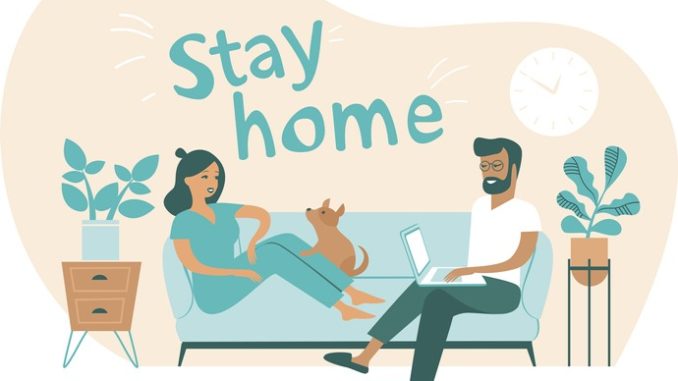
Four people who have been self-isolating due to illness tell us how they are coping
CREDIT: This is an edited version of an article that originally appeared The Guardian
Sheila
Sheila O’Neill, the managing director of a provider of specialist services for people with learning difficulties and autism, has been self-isolating for over a week. “I started social distancing three weeks ago because I felt unwell, and because of my age,” said the 73-year-old. “I’ve been staying inside watching the sheep.”
Sheila, who founded City Care Partnership, developed a severe cough two weeks ago. After a ‘phone consultation with her GP she was diagnosed with a chest infection and prescribed antibiotics.
She began self-isolation in Manchester, where she lives, but moved to her cottage in Wales on Sunday. “I’m one of the fortunate ones,” she said. “It’s a very difficult situation for elderly people. The majority of us live productive lives, and hope that society will take care of us when we are older, but we appear to have been abandoned by the health service and the government.
“I’ve finished the course of antibiotics and now I just hope it goes. I’ve been putting Vicks on my chest and taking menthols. I’m quite determined.”
Sheila has been trying to support the people she works with from home. “We offer a lot of activities like horse-riding, crafts, etc. Some of those won’t be possible now, but we are trying to find ways to deliver other services using video.
“I’ve been reading a lot and am nearly caught up with the programmes I’ve missed. At the moment I’m watching Hidden. I have three children, and eight grandchildren, and I’m actually trying to stop the social contact. When they all try and call it’s the end of the day before I know it.”
John
John, who works as a bicycle courier in Manchester, decided to self-isolate on Saturday after waking up with a cough, fever and shortness of breath. “I wanted to be cautious as my job involves visiting people who might be vulnerable to coronavirus.
“I messaged the supply company and they disabled my account for seven days, so I’m unable to work,” said the 24-year-old.
“This wouldn’t normally be a problem – they have funds available for people who have coronavirus – but they’re not available unless you get medically tested.”
As people are not getting tested for the virus unless they have been admitted to hospital John fears some people in the gig economy may not have access to the funds they need. “It makes sense, as it prevents fraud, but it’s a very difficult time,” he said.
John said he reduces social isolation by talking to people all day on platforms, such as Discord, where gaming communities can chat and share their screens while playing. “Not talking to real people can be difficult because you struggle to know whether your thoughts are valid,” he said. “Hearing people’s voices makes you feel human, and it’s a good way of trying to maintain social connections without social contact.
“I live alone and one problem is that I don’t tend to remember what day it is. We’re so used to doing things that define our time off work that being at home means not having that shared experience. I’m anticipating going back to work soon, though, as people need food delivered, and there could be someone who is reliant on me.”
Rosie
Rosie, who works in an office in London, has been in self-isolation for over a week. “I filled in the 111 questionnaire online and it advised me to call my GP,” she said. “I could only get through to a receptionist who advised me to go to the pharmacy, which I didn’t think was a good idea because I had a sore throat and was coughing.
“I’m lucky enough to get two weeks’ sick leave from my workplace, and my colleagues are supportive and understanding,” said the 37-year-old who is at home with her husband, who works in finance in IT. “My husband’s employer has been pushing for me to get tested, but I can’t.”
Rosie has been too unwell to do anything but rest at home. “I don’t need to think about how to pass the time as I’m actually sick. I feel tired and weak, so I don’t want to do anything. Passing the time is not a big problem.”
Andrew
Andrew Moscrop, 42, works as a GP in Oxford and has been in self-isolation since Friday after his temperature rose to 38.6°C. “My fever resolved over the weekend,” he said. “Any other time I would go back to work as normal, but I can’t.”
Andrew contacted 111, Public Health England, the local health protection agency and the John Radcliffe hospital in the hope of being tested. “The advice was the same. Stay at home. It’s quite frustrating as, at the end of the day, you just want to do your job.
“We are facing an escalating caseload and the government has talked of drafting in retired clinicians – surely we should be testing frontline health workers so, if negative, they can return to work promptly after an illness?”
Don’t forget to follow Dealer Support on Facebook and Twitter!

Be the first to comment